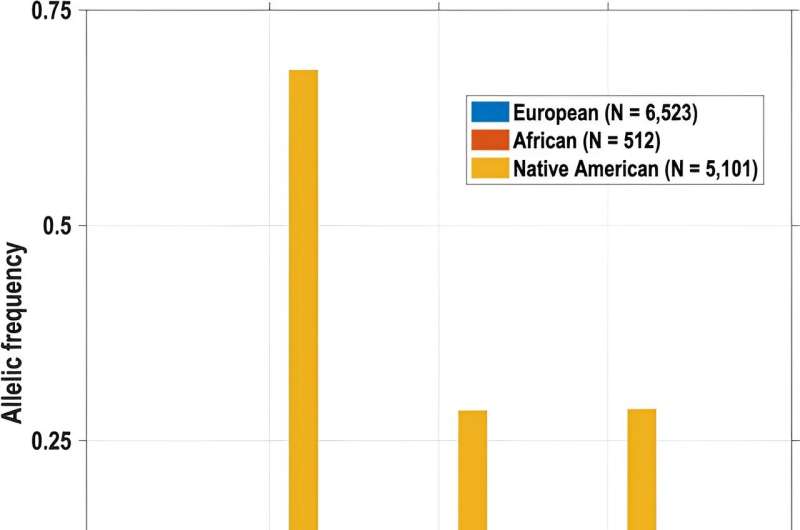This article has been reviewed according to Science X's editorial process and policies. Editors have highlighted the following attributes while ensuring the content's credibility:
fact-checked
peer-reviewed publication
trusted source
proofread
Neanderthal gene variants associated with greater pain sensitivity

People who carry three gene variants inherited from Neanderthals are more sensitive to some types of pain, according to a new study co-led by UCL researchers.
The findings
, published in Communications Biology, are the latest findings to show how past interbreeding with Neanderthals has influenced the genetics of modern humans. The researchers found that people carrying three so-called Neanderthal variants in the gene SCN9A, which is implicated in
Previous research has identified three variations in the SCN9A gene—known as M932L, V991L, and D1908G—in sequenced Neanderthal genomes and reports of greater pain sensitivity among humans carrying all three variants. However, prior to this study, the specific sensory responses affected by these variants were unclear.
An international team led by researchers at UCL, Aix-Marseille University, University of Toulouse, Open University, Fudan University, and Oxford University measured the pain thresholds of 1,963 people from Colombia in response to a range of stimuli.
The SCN9A gene encodes a sodium channel that is expressed at high levels in sensory neurons that detect signals from damaged tissue. The researchers found that the D1908G variant of the gene was present in around 20% of chromosomes within this population and around 30% of chromosomes carrying this variant also carried the M932L and V991L variants.
The authors found that the three variants were associated with a lower pain threshold in response to skin pricking after prior exposure to mustard oil, but not in response to heat or pressure. Additionally, carrying all three variants was associated with greater pain sensitivity than carrying only one.
When they analyzed the genomic region including SCN9A, using genetic data from 5,971 people from Brazil, Chile, Colombia, Mexico and Peru, the authors found that the three Neanderthal variants were more common in populations with higher proportions of Native American ancestry, such as the Peruvian population, in which the average proportion of Native American ancestry was 66%.
The authors propose that the Neanderthal variants may sensitize sensory neurons by altering the threshold at which a nerve impulse is generated. They speculate that the variants may be more common in populations with higher proportions of Native American ancestry as a result of random chance and population bottlenecks that occurred during the initial occupation of the Americas. Although acute pain can moderate behavior and prevent further injury, the scientists that say additional research is needed to determine whether carrying these variants and having greater pain sensitivity may have been advantageous during human evolution.
Previous research by co-corresponding author Dr. Kaustubh Adhikari (UCL Genetics, Evolution & Environment and The Open University) has shown that humans also inherited some genetic material from Neanderthals affecting the shape of our noses.
Dr. Adhikari commented, "In the last 15 years, since the Neanderthal genome was first sequenced, we have been learning more and more about what we have inherited from them as a result of interbreeding tens of thousands of years ago.
"Pain sensitivity is an important survival trait that enables us to avoid painful things that could cause us serious harm. Our findings suggest that Neanderthals may have been more sensitive to certain types of pain, but further research is needed for us to understand why that is the case, and whether these specific genetic variants were evolutionarily advantageous."
First author Dr. Pierre Faux (Aix-Marseille University and University of Toulouse) said, "We have shown how variation in our genetic code can alter how we perceive pain, including genes that modern humans acquired from the Neanderthals. But genes are just one of many factors, including environment, past experience, and psychological factors, which influence pain."
More information: Pierre Faux et al, Neanderthal introgression in SCN9A impacts mechanical pain sensitivity, Communications Biology (2023). DOI: 10.1038/s42003-023-05286-z
Journal information: Communications Biology
Provided by University College London





















